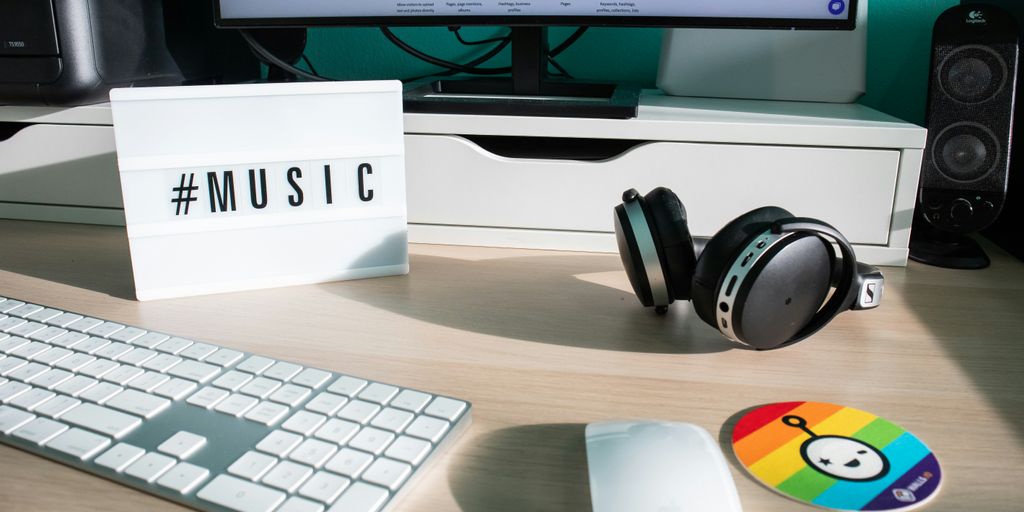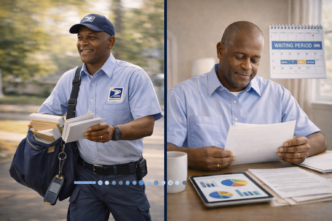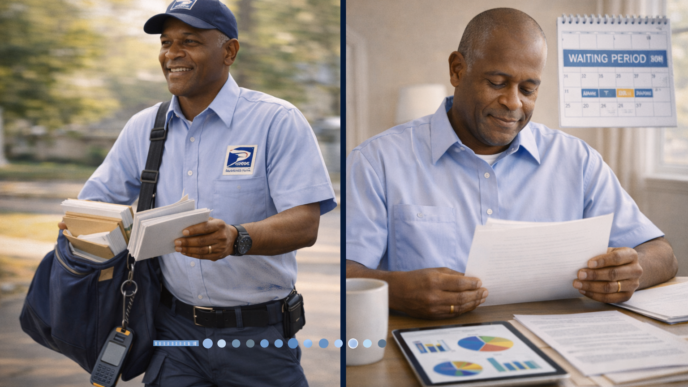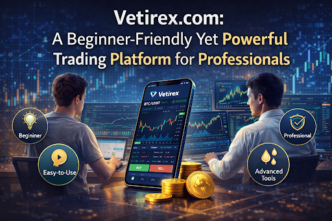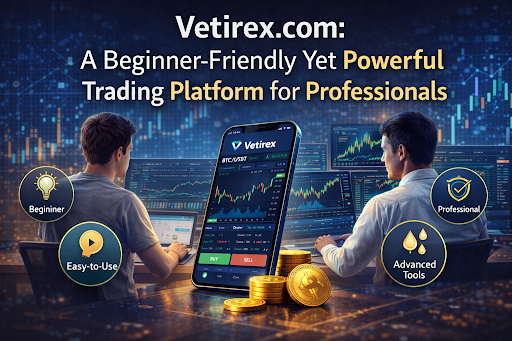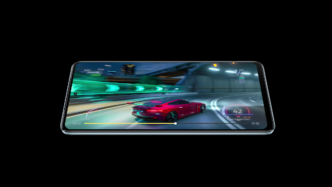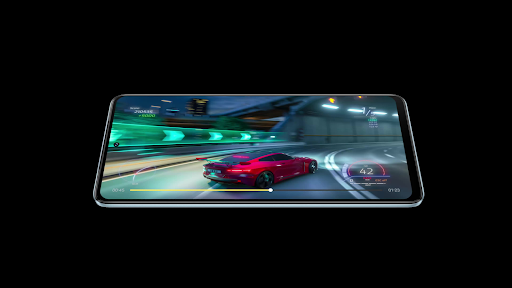Getting your music out there and heard by people is a big deal for any artist. It doesn’t matter if you’re just starting or you’ve been making music for a while, knowing how to do good music marketing is super important if you want to do well. This guide will walk you through the basics, give you some good ways to promote your music, and share useful music marketing tips to help you deal with the always-changing world of getting your songs noticed.
Key Takeaways
- A smart approach to music marketing helps you connect with fans better. This means looking at who your audience is, setting clear goals, and doing promotions that reach the right people.
- Online tools, like good websites and places where people stream music, are important for having a strong online presence. They also help you use music videos to tell your story in a visual way.
- Working with others, paying for ads, selling merchandise, and handling media relations well can help an artist get more attention and make their brand stronger in the busy music world.
- Making a plan for your music marketing helps you figure out who you’re trying to reach, what you want to achieve, and how to spend your money wisely for the best results.
- Being active on social media and streaming platforms, and making cool music videos, are good ways to get people interested and build a loyal fanbase.
Understanding Music Marketing Fundamentals

Defining Music Marketing
Okay, so what is music marketing? It’s more than just posting on Instagram and hoping for the best. It’s about strategically promoting your music to the right people, in the right places, at the right time. Think of it as building a bridge between your music and your potential fans. It involves a bunch of different things, like:
- Figuring out who your ideal listener is.
- Crafting a message that resonates with them.
- Using different channels to get your music heard.
It’s not a one-size-fits-all thing, and it definitely takes some effort to figure out what works best for you. You need to understand music marketing to get your music out there.
The Importance of Strategic Promotion
Why bother with a strategy? Can’t you just release music and hope it takes off? Well, you could, but that’s like throwing spaghetti at the wall and hoping something sticks. Strategic promotion is all about being smart with your time and resources. It means:
- Having a plan for each release.
- Knowing your goals (more streams, more followers, more gigs?).
- Tracking your results and adjusting your approach.
Without a strategy, you’re basically wandering in the dark. With one, you’ve got a map and a compass. It’s about making informed decisions, not just guessing. It’s about MS Project for Beginners to help you plan your music promotion.
Core Principles of Effective Campaigns
So, what makes a music marketing campaign effective? There are a few core principles to keep in mind:
- Authenticity: Be yourself! People can spot a fake a mile away.
- Consistency: Show up regularly. Don’t disappear for months at a time.
- Engagement: Interact with your fans. Respond to comments, ask questions, and build a community.
- Value: Give your fans something they want. Whether it’s great music, behind-the-scenes content, or exclusive merch.
Think of these principles as the foundation of your marketing efforts. Build on them, and you’ll be in a much better position to succeed. It’s about mastering the basics of music marketing.
Crafting Your Music Marketing Blueprint
Okay, so you’re ready to get serious about music marketing. That’s awesome! But before you start blasting your music everywhere, you need a plan. Think of it like building a house – you wouldn’t just start throwing bricks together, right? You need a blueprint. This section is all about creating that blueprint for your music career.
Identifying Your Target Audience
Who are you trying to reach with your music? This isn’t just a random question; it’s the question. Are you making music for Gen Z gamers, middle-aged country fans, or indie music lovers? Knowing your audience dictates everything from your social media strategy to your content marketing.
Think about these things:
- Demographics: Age, location, gender, income. Get specific!
- Interests: What else are they into? Movies, books, hobbies?
- Where do they hang out online?: Which social platforms do they use? What blogs do they read?
Setting Clear Marketing Goals
What do you actually want to achieve with your music marketing? "Get famous" is not a goal. It’s way too vague. Instead, think about specific, measurable, achievable, relevant, and time-bound (SMART) goals.
Here are some examples:
- Increase Spotify monthly listeners by 20% in three months.
- Sell 100 copies of your new EP in the first week.
- Get booked for five gigs in your local area within six months.
Having clear goals helps you track your progress and adjust your strategy as needed. It also keeps you motivated when things get tough. It’s easy to get lost in the weeds, but having those goals to come back to is important.
Budgeting for Marketing Success
Let’s talk money. How much are you willing to spend on marketing? This doesn’t have to be a huge amount, but you need to allocate some funds. Even a small budget can make a difference if you spend it wisely.
Here’s a basic breakdown of potential costs:
- Social Media Ads: Even $5-$10 a day can boost your reach.
- Email Marketing: Some platforms are free up to a certain number of subscribers.
- Website Hosting: Factor in domain registration and hosting fees.
- Music Video Production: This can range from DIY to professional, impacting the cost significantly.
Don’t be afraid to start small and scale up as you see results. The key is to track your spending and see what’s working. You might find that music marketing strategy is more effective than another, so you can adjust your budget accordingly.
The Artist’s Digital Toolkit
An artist’s instruments aren’t just guitars and drums anymore. To really make it in today’s music scene, you need a solid online game plan. Think of it as your digital toolbox – filled with ways to connect with fans, promote your music, and build a lasting career. It’s more than just posting on Instagram; it’s about crafting a presence that feels authentic and engaging.
Building a Strong Online Presence
Your website is your digital home base. It’s where fans can go to find everything about you – music, tour dates, merch, and more. Think of it as your resume and fan club all rolled into one. Social media is great, but you don’t control it. Your website? That’s all you. Make sure it’s easy to navigate, looks good on phones, and reflects your unique style. Don’t forget to include an email signup form! Building a strong online presence is key to connecting with your audience.
Leveraging Streaming Platforms
Streaming is king. Getting your music on Spotify, Apple Music, and other platforms is non-negotiable. But it’s not enough to just upload your tracks. You need to understand how these platforms work. Here’s a few things to keep in mind:
- Optimize your profile: Use high-quality images, write a compelling bio, and keep everything updated.
- Submit to playlists: Getting on popular playlists can give your music a huge boost. Research playlists that fit your genre and submit your music for consideration.
- Engage with your stats: Pay attention to your listener data. Where are your fans located? What other artists do they listen to? Use this information to target your marketing efforts.
Mastering Social Media Engagement
Social media is where you connect with fans on a personal level. It’s not just about blasting out promotional messages; it’s about building relationships. Here are some tips:
- Be authentic: Don’t try to be someone you’re not. Let your personality shine through.
- Engage with your fans: Respond to comments, answer questions, and start conversations.
- Use different platforms strategically: TikTok is great for short-form video, Instagram is perfect for visuals, and Twitter is ideal for quick updates and engaging in real-time conversations. Tailor your content to each platform. Consider using tools for music promotion to help manage your social media presence.
- Run contests and giveaways: These are great ways to get people excited about your music and grow your following.
- Go live: Live streams are a great way to connect with fans in real-time and give them a behind-the-scenes look at your life as an artist.
Key Strategies for Music Marketing Success
Utilizing Music Videos for Visual Storytelling
Music videos are no longer optional; they’re pretty much expected. They give fans a visual connection to your music, turning a song into an experience. Think of them as mini-movies that can seriously boost your reach. I remember when I first started, I thought music videos were too expensive, but honestly, even a low-budget, creative video can do wonders. It’s all about the idea. Plus, platforms like YouTube are basically search engines for music videos, so a good video can really help with discoverability. Make sure you have a strong online presence to showcase your music videos.
Engaging with Your Fanbase
This is where the real magic happens. Forget just broadcasting; start conversations. Here’s a few ideas:
- Respond to Comments: Seriously, take the time. It shows you care.
- Run Q&A Sessions: Use Instagram Live or Twitter. People love feeling heard.
- Create Polls & Quizzes: Get their opinions on upcoming tracks or album art.
- Exclusive Content: Offer something special to your most loyal fans, like early access to music or behind-the-scenes stuff.
I’ve seen artists build incredible communities just by being genuinely engaged. It’s not about the numbers; it’s about the connection. A strategic approach to music marketing enhances connection with fans.
Exploring Paid Advertising Opportunities
Okay, let’s talk money. Paid ads can feel like a gamble, but when done right, they can be super effective. Here’s the deal:
- Targeted Ads: Facebook and Instagram ads let you target specific demographics, interests, and even behaviors. Get granular!
- YouTube Ads: Reach people actively searching for music similar to yours.
- Spotify Ads: Promote your music directly to listeners on Spotify. This is a great way to amplify our music.
Don’t just throw money at ads blindly. Start small, test different approaches, and track your results. What’s your ROI? If it’s not working, tweak your strategy. It’s all about finding what resonates with your target audience and optimizing from there.
Expanding Your Reach Through Collaboration
Partnering with Other Artists
Okay, so you’re trying to get your music out there, right? One of the best ways to do that is by teaming up with other musicians. Think about it: you get access to their fans, and they get access to yours. It’s a win-win! The key is to find artists who complement your style but aren’t direct competitors.
- Consider artists in related genres. If you’re indie rock, maybe collaborate with someone in the alternative pop scene.
- Look for artists with a similar level of following. Teaming up with someone way bigger might not give you as much exposure as you’d hope.
- Don’t be afraid to reach out! The worst they can say is no.
Working with Influencers and Playlisters
Influencers and playlisters can be game-changers. These are the people who already have the attention of your target audience. Getting them on board can seriously boost your visibility. I mean, who doesn’t want to be on a popular playlist?
- Identify influencers whose style aligns with your music. Authenticity is key here.
- Research popular playlists in your genre. Find the curators and reach out with a personalized pitch.
- Offer something of value. Maybe it’s early access to your music, a shout-out, or even a small payment.
Navigating Public Relations for Artists
PR can seem intimidating, but it’s really just about getting your story out there. Think of it as building relationships with the people who can help spread the word about your music. It’s not always easy, but it’s worth it. You can plan for an event to promote your music.
- Create a press kit. Include your bio, photos, music samples, and any notable achievements.
- Identify music bloggers, journalists, and radio stations that cover your genre. Start small and work your way up.
- Don’t be afraid to follow up. Persistence pays off, but be respectful and avoid being pushy.
Monetization and Brand Building
Developing Merchandise Strategies
Okay, so you’ve got the music down, people are listening, now what? Merch! It’s not just about slapping your logo on a t-shirt (though, that can work too). Think about what your fans actually want. What represents your music and your brand? Is it a limited-edition vinyl? A cool hat? Maybe even something totally unexpected, like custom guitar picks or stickers. The key is to create items that people will genuinely want to buy and show off.
Here’s a few ideas to get you started:
- Tiered Bundles: Offer different packages at various price points. A basic bundle could include a CD and a sticker, while a premium bundle might have a signed poster, a t-shirt, and early access to new music.
- Limited Edition Items: Create a sense of urgency by releasing limited-edition merchandise. This could be a special color vinyl, a numbered print, or a unique piece of clothing.
- Collaborate with Artists/Designers: Partner with visual artists or designers to create unique and eye-catching merchandise. This can help you reach new audiences and add a fresh perspective to your brand.
Exploring Crowdfunding for Projects
Need to fund your next album, music video, or tour? Crowdfunding can be a great option. It’s not just about getting money; it’s about building a community. Platforms like Kickstarter and GoFundMe allow you to connect directly with your fans and offer them exclusive rewards in exchange for their support. Think about offering signed copies of your album, private online concerts, or even a chance to be in your next music video.
Here’s a quick rundown of things to consider:
- Set a Realistic Goal: Don’t aim too high. It’s better to set a lower goal and exceed it than to set an unrealistic goal and fall short.
- Offer Compelling Rewards: Make sure your rewards are enticing and relevant to your fans. Think about what they would value most.
- Promote Your Campaign: Don’t just launch your campaign and hope for the best. Actively promote it on social media, through email, and on your website.
Building a Unique Artist Brand Identity
What makes you, you? It’s more than just your music. It’s your style, your values, your story. Your brand is how people perceive you, so make sure you’re sending the right message. Think about your visual aesthetic, your social media presence, and how you interact with your fans. Are you edgy and rebellious? Or are you more laid-back and approachable? Whatever it is, be authentic and consistent.
Here are some questions to ask yourself:
- What are my core values as an artist?
- What is my unique selling proposition (USP)? What makes me different from other artists?
- Who is my target audience, and what do they care about?
Once you have a clear understanding of your brand, you can start to develop a consistent visual identity, messaging, and overall brand experience. This will help you stand out from the crowd and connect with your fans on a deeper level. Consider working with a designer to create a logo and visual assets that reflect your brand. Also, think about your social media strategy and how you can use it to tell your story and engage with your audience.
Wrapping Up: Your Music, Your Path
So, there you have it. Getting your music out there and making people notice it isn’t just about making good tunes. It’s about being smart with how you show it off. Think of it like this: you’ve got this awesome painting, but if it’s stuck in your closet, no one will ever see it. You gotta put it in a gallery, tell people about it, maybe even get some buzz going. The music world is always changing, right? New apps, new ways to share stuff. But the main idea stays the same: connect with people who like what you do. Use these ideas, try new things, and keep putting your art out there. That’s how you make your mark.
Frequently Asked Questions
What exactly is music marketing?
Music marketing is all about getting your music heard by more people and turning them into fans. It involves lots of different actions, like telling folks about your songs, making connections with listeners, and eventually, getting them to buy or stream your work. It’s how artists get their art out into the world.
What are the key parts of marketing music?
The main parts of marketing music are often called the ‘4 P’s’: People, Product, Place, and Promotion. ‘People’ means knowing who you’re trying to reach. ‘Product’ is your music itself. ‘Place’ is where your music can be found, like streaming sites or stores. And ‘Promotion’ is how you tell everyone about your music.
How does a music marketer help an artist?
A good music marketer helps artists figure out what they want to achieve and then creates a plan to make it happen. They work to make sure your music reaches the right ears and gets the attention it deserves, helping you grow your audience.
Do I need a lot of money to market my music?
You don’t need a huge budget to start. Many effective strategies are free or low-cost, like using social media, building an email list, and connecting with other artists. The most important thing is to be smart about where you put your effort and money.
What’s the best way to reach my audience?
The best way to reach your audience is by knowing who they are and where they hang out online. Are they on TikTok, YouTube, or Spotify? Once you know that, you can focus your efforts on those platforms and create content they’ll enjoy.
How can I keep my fans engaged?
It’s super important to keep your fans involved! Respond to their comments, ask them questions, share behind-the-scenes stuff, and make them feel like they’re part of your journey. The more you connect, the stronger your fanbase will be.


